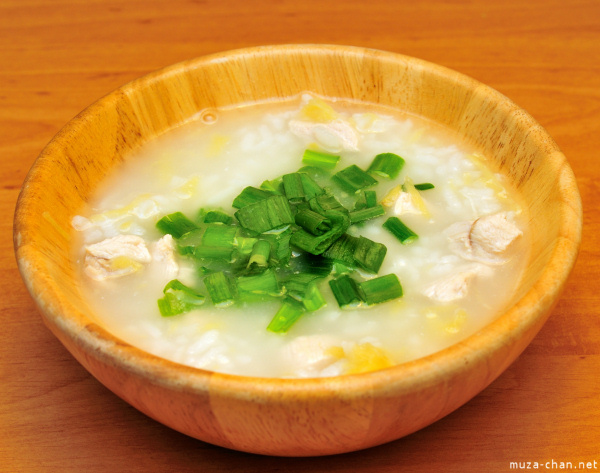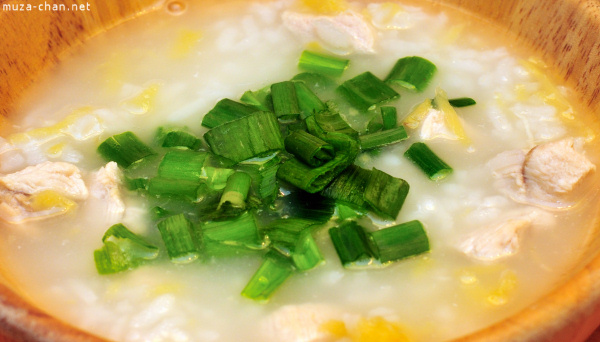Tomorrow, on January 7th, Jinjitsu ( 人日 ) - the Human Day is celebrated in Japan, a festival originating from the ancient China.
According to the Chinese tradition, the first 7 days of the first lunar month of the year were assigned to a creature. In order, these creatures are the chicken, the dog, the boar, the sheep, the cow, the horse and the human. On the assigned day, it was forbidden to kill the specific creature, so even the punishment of the criminals was forbidden on the 7th day.
In Japan, during the Meiji period, when the solar calendar was adopted, the festival was moved to the 7th day of the year.
The festival is also known in Japan as the Nanakusa no sekku ( 七草の節句 ), the festival of the 7 herbs, occasion on which a special dish is cooked, a version of the okayu.
Okayu ( お粥 ) or simpler, kayu, is a type of congee made mainly from rice and water (in proportions of 1:5 or 1:7), a very simple dish, so popular in Japan that on many Japanese electric rice cookers there is a pre-setting for okayu.
Because it is very easy to digest, okayu is usually the first solid meal for the Japanese babies and it is also frequently eaten by elders.
The special okayu served on January 7th is called Nanakusa-gayu (七草粥, seven herb porridge) and it is believed to be helpful against evil spirits and to bring health, longevity and good luck.
The Nanakusa-gayu recipe varies from a region to another, but traditionally it cooked with seven herbs: Japanese parsley (seri), Shepherd’s purse (nazuna), Jersey Cudweed ( gogyō ), Common chickweed (hakobera), Nipplewort (hotokenoza), Turnip (suzuna), Daikon (suzushiro).
Regarding the usual okayu, if you wish to cook it, here is the recipe I’m using:
Shoga gayu (okayu with ginger)

Ingredients for two servings:
- 1/2 cup Japanese rice
- 3 cups water
- salt
- some chopped green onion negi
- ginger finely cut
- a half of a boneless chicken breast, boiled, cut in small cubes
First, put the rice, washed and drained, in cold water in a deep pot and leave it for 30 minutes. After, put the pot on medium fire and bring to a boil. Then lower the fire and leave to boil for approx. 30 minutes, until the rice is cooked.
Before serving add salt, ginger, the chicken cubes and sprinkle the chopped onion on top.
Of course, there are many other possibilities, the water can be replaced with miso soup or with chicken stock, you can add eggs, salmon and for toppings you can use sesame seeds and umeboshi.
Bon appetite! :)



